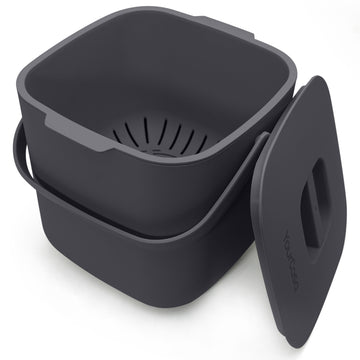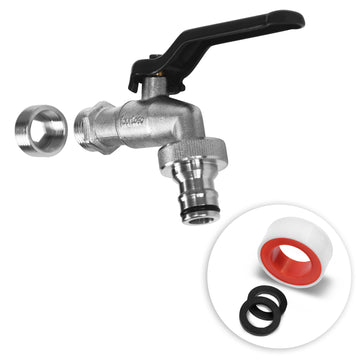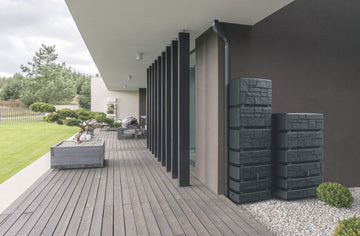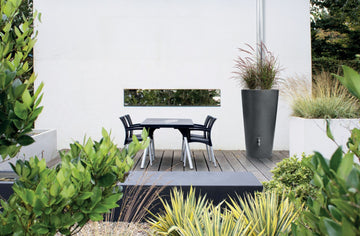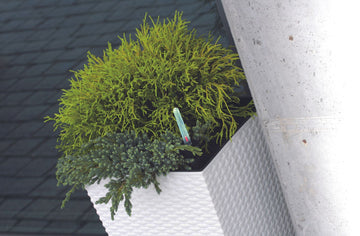
Soft, lime-free water is a real blessing for your garden plants – because hard water containing lime and other chemicals may not be good for them.
What are the benefits of soft, lime-free water for plants? Soft, lime-free water promotes plant growth and health by preventing limescale deposits in the soil, improving nutrient uptake and reducing the risk of leaf discoloration. It improves soil structure, facilitates water uptake by the roots and supports efficient distribution of essential nutrients. As a result, plants develop stronger roots, livelier leaves and increased vitality.
You can easily obtain soft, lime-free water from rainwater. This is much better for watering your garden plants than tap water.
What is soft, lime-free water?
Soft water has a significantly lower content of dissolved minerals such as calcium and magnesium. Such substances form lime. In hard water, these occur in significantly higher concentrations. The so-called water hardness is therefore determined by the concentration of these materials and is also measured in Germany.
Since rainwater contains little to no lime, it is particularly suitable for use in gardens and for plant care. It leaves no lime deposits in the soil or on plants. Soft, lime-free water therefore prevents the typical problems caused by hard water. These include the impairment of the plants' nutrient absorption and the deterioration of soil quality. Soft water, on the other hand, promotes healthy plant growth.
The negative effects of hard water on plants
Hard water, which is rich in lime and other minerals such as calcium and magnesium, can be problematic for plants . These minerals can build up in the soil and form limescale deposits that affect soil structure and porosity. This causes the soil's permeability to decrease, making it difficult for plant roots to absorb water and nutrients effectively. In addition, hard water can cause a change in soil pH, which disrupts microbial balance and limits the availability of essential nutrients to plants.
Plants watered with hard water often show signs of stress such as leaf discoloration , stunted growth, and reduced flower production. While occasional use of hard water certainly won't harm your plants too much, in the long term it can seriously affect your plants' health, shorten their lifespan, and reduce their aesthetic quality.
Here again is an overview of all the disadvantages of using hard water in the garden:
- Limescale deposits in the soil : Lead to a deterioration of soil structure and porosity, which affects water absorption and nutrient availability.
- Difficult nutrient absorption : The minerals contained in hard water can hinder the absorption of important nutrients by plants.
- pH changes : Hard water can change the pH of the soil, disrupting the microbial balance and limiting nutrient availability.
- Leaf discoloration : Mineral deposits on leaves can cause discoloration and impair photosynthesis.
- Stunted plant growth : Impairment of nutrient and water uptake can lead to slow or stunted plant growth.
- Reduced flowering : The negative effects on plant health can also be seen in reduced flowering.
- Impaired soil quality : In the long term, hard water can have a lasting impact on soil quality, leading to a reduction in soil fertility.
Why use soft, lime-free water for plants?
Just as there are disadvantages to using hard water in the garden, there are numerous advantages to using soft, lime-free water . Firstly, it allows unhindered absorption of water and nutrients by plant roots as it leaves no mineral residue that could clog soil pores. This ensures that plants can absorb essential nutrients more effectively, resulting in stronger growth and improved health.
Soft water also helps maintain a balanced pH in the soil , which is crucial for nutrient uptake and microbial life in the soil. Plants watered with soft water often have more vibrant leaf color and greater resistance to stress factors. Soft water also promotes flower and fruit formation by allowing plants to invest their energy more efficiently in growth and reproduction - so watering your vegetables and fruit trees with soft water is ideal. Preventing calcium deposits on leaves and in the soil also helps plants stay healthier and maintain their aesthetic appearance for longer.
How to get lime-free water for plants
There are several ways to get soft water for your plants. The most common method is collecting rainwater - and anyone can do it. Basically, all you need is a rain barrel from YourCasa and an easy-to-set-up collection system. At YourCasa you will find a large selection of barrels and accessories. The following models are particularly popular:
| Model | Price in € | Extras |
| YourCasa Rain Barrel 240 liters [Wave Design] Rain Barrel Frost-proof made of plastic – Rainwater Barrel with Tap | 139,00 | Water tap, weatherproof, two connections, plantable |
| Rain barrel 210/360/440 liters [Amphora Design] Rain barrel frost-proof made of plastic – rainwater barrel with tap | 95.99 | Water tap, weatherproof, plantable, two connections |
| YourCasa rain barrel 290 liters [Premium] with metal thread and lid – frost-proof plastic rain barrel – rainwater barrel | 179.99 | Metal thread, three connections |
| YourCasa rain barrel 80/160/200 [including rain collector] rain barrel with downpipe connection set and tap | 74,99 | Downpipe connection set, tap, weatherproof |
| YourCasa rain barrel 300 liters [StoneRain] with metal thread and lid in stone look – frost-proof rain barrel made of plastic | 349.99 | Metal thread, windproof, rotation process, three connections |
Another option is to use water softeners , which remove or neutralize calcium and magnesium ions from tap water to reduce water hardness. For smaller quantities or specific applications , distilled water or water filtered by reverse osmosis can also be used, both of which are free of limescale and other minerals.

Comparison of different water sources
Tap water, rainwater and distilled water offer different advantages and disadvantages for garden watering . Tap water is readily available but can be harmful to many plants due to its often high lime content and chlorine treatment. Rainwater, on the other hand, is softer and free of chlorine and lime, making it particularly plant-friendly. To use it, however, you need collection systems and storage solutions - you can get these from YourCasa. Distilled water, which is obtained by evaporation and condensation of pure H₂O, is free of minerals and pollutants - making it ideal for sensitive plants. However, the process of distillation is quite energy-intensive and therefore usually too costly and impractical for regular garden watering.
Here again are the advantages of the different water sources at a glance:
| Water source | Advantages | Disadvantages |
| Tap water | Immediately available, no additional equipment required | May contain lime and chlorine, not ideal for all plants |
| Rainwater | Soft, free from chlorine and lime, plant-friendly | Collection and storage system required, irregular availability |
| Distilled water | Free from minerals and pollutants, ideal for sensitive plants | Energy-intensive production, expensive for large quantities |
Practical tips for using soft water in the garden
To use rainwater effectively in your own garden, you first need to collect it . As mentioned above, this is easy to do with a rain barrel and the necessary accessories from YourCasa. Make sure to always cover your barrel and filter the rainwater if possible to avoid contamination and mosquito breeding grounds. If you have to use tap water, a water softener can help reduce the lime content.
Then it's all about using the collected rainwater correctly . Water your plants directly at the roots. This way you use less water and give your plants more of the liquid elixir of life. Watering in the morning or evening reduces evaporation and ensures that the water really gets to where it's needed most. To prevent your plants from being overwatered, you can also keep an eye on the moisture content of the soil around them.
Conclusion
Do you want healthy plants in your garden ? Then the correct use of soft water plays a crucial role. Hard water can be harmful to many types of plants in the long term and should therefore only be used for watering in an emergency.
With the rain barrels from YourCasa you can easily collect precious rainwater , do something good for your plants and save money at the same time - because your water bill will immediately be noticeably reduced.

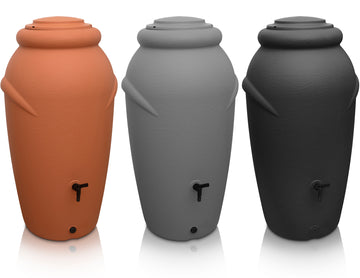
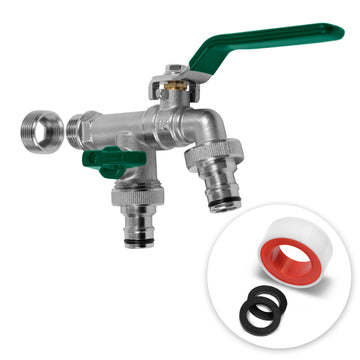
![Drei hohe YourCasa Regentonne 240 Liter [Wellen-Design] - Frostsicher & UV-beständige Gartentöpfe in den Farben Schwarz, Grau und Terrakotta, jeweils mit Drainagesystem für nachhaltige Bewässerung.](http://yourcasa.de/cdn/shop/files/ohnelogo_b8aeecac-557e-4106-a999-e77dcd160209.jpg?v=1707130230&width=360)
